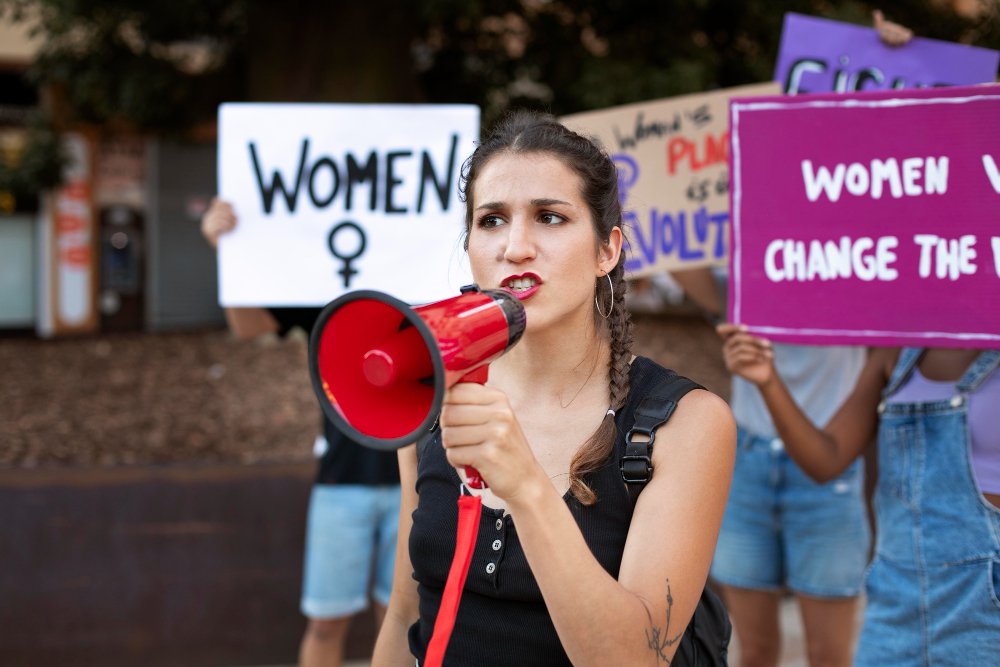Mothers First, Women Second: Childfree Women’s Fight for Sterilization
Lisa Samy
April 2024
For a woman to decide to be childfree—meaning to not have children—they are chained to a never-ending struggle for bodily autonomy. In particular, when it comes to the fight for permanent sterilization. Sue, a childfree woman living in Queensland, Australia, had long suffered uncomfortable side effects from hormonal contraception.[1] Yet, her doctor refused to consider her request for permanent sterilization, and “treated [her] very condescendingly,” leaving her with “long-lasting trauma.”[1]
Surely if women are old enough to have children, then they are old enough to choose not to have them as well. As of now, many people believe this isn’t the case.

Don’t Want Children? Prepare to get “Bingoed”
Rising inflation, living costs, climate change, and stricter anti-abortion legislations ( the reversal of Roe v. Wade) have solidified an increasing number of young women’s choice to be childfree.[4] Still, there are women who don’t wish to have children simply because they don’t feel “that calling” to be a mother.[4] Any and all reasons should be treated as enough, but society’s overwhelmingly pronatalist views and enforced gender roles bar its validation.
Therefore, childfree women are lambasted with negative and presumptuous comments about their decision, even from friends and family. One of the largest online childfree communities—the r/childfree subreddit on the platform Reddit—has labeled these remarks as “bingos.”[2] Some notable bingos are “you’ll change your mind,” “don’t worry, you’ll find the one someday” or “so, you just sleep around then?”[2] In short, their choices aren’t taken seriously and reduced to a phase.
The Hard-fought Battle for Sterilization
The main reason doctors deny sterilization requests to child-free women are their potential regret for their decision.[3] However, studies show that post sterilization regret for women is merely “20.3 percent of those 30 or younger and 5.9 percent of those over 30.”[3] Regardless, the world constantly equates motherhood to womanhood, forcing childfree women into a status of perceived inferiority. They are stereotyped as selfish and immature, shirking from their duty to reproduce, and regarded with a less rewarding life compared to women with children.[3]
On the other hand, childfree men don’t deal with nearly as much backlash. Fatherhood is associated as a learned skill rather than an intrinsic one—as in, separate to a man’s biological makeup.[3] Furthermore, studies indicating the sterilization regret for childfree men are sparse, cementing that men aren’t held up to the same level of scrutiny.[3] As such, sexism creates a division between childfree men and childfree women’s experiences.
In fact, childfree women with partners have attested to this disparity. Jess Lawry, a military spouse, says her husband was able to receive a vasectomy with little to no pushback from doctors.[4] It’s a stark contrast compared to her journey for a tubal ligation: one of countless attempts, ending with no approval for sterilization.[4]
Opening the Doors to Communication
Women are slowly realizing that having children isn’t an obligation—it’s a choice. Those who do opt to be childfree hope to have candid discussions with their friends and family one day, but fear the derisive remarks they may receive.[1] When people let go of gendered prejudices, it opens a much needed path for childfree women to find support from loved ones, and access birth control that caters to their needs.
References:
[1] Davey, Melissa. (2021). ‘Why is it such a scandalous thing?’: the women who have to fight for their right to be child-free. The Guardian. https://www.theguardian.com/society/2021/jan/08/why-is-it-such-a-scandalous-thing-the-women -who-have-to-fight-for-their-right-to-be-child-free
[2] Hintz A., Elizabeth & Brown L., Clinton. (2019). Childfree and “bingoed”: A relational dialectics theory analysis of meaning creation in online narratives about voluntary childlessness. Communication Monographs. (2019). https://www.marshall.edu/commstu/files/Monographs_Childfree-and-bingoed_-A-relational-dial ectics-theory-analysis-of-meaning-creation-in-online-narratives-about-voluntary-childlessness.pdf
[3] Lalonde, Dianne. (2018). Sexist barriers block women’s choice to be sterilized. The Conversation. https://theconversation.com/sexist-barriers-block-womens-choice-to-be-sterilized-99754
[4] Sweeney, Britney. (2022). The rise of childfree Gen-Z: As demand for female STERILIZATION for under-30s soars, ‘childless-by-choice’ women speak out about their decision and the bitter struggles they’ve faced – from doctors REFUSING surgeries to shock $28K bill. Daily Mail. https://www.dailymail.co.uk/news/article-11051355/Gen-Z-women-sterilized-speak-decision.htm





